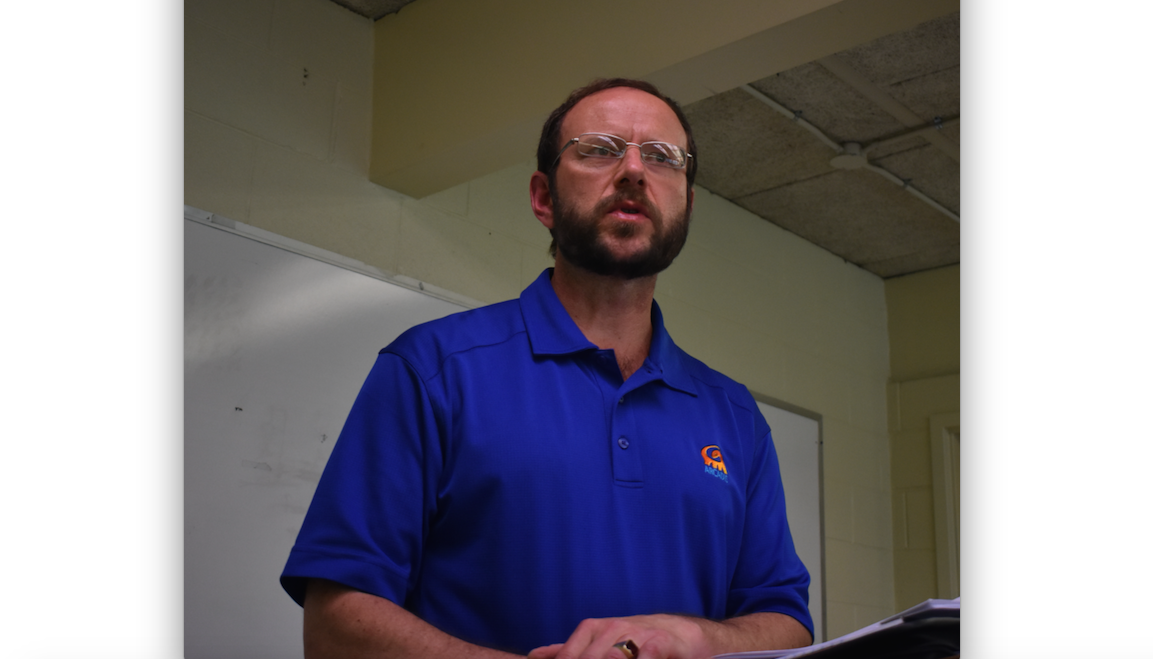Cobbs Creek ordinance tabled
Published 9:29 am Tuesday, July 2, 2019

- EMILY HOLLINGSWORTH | HERALD Paul Peterson, project manager with Arcadis, speaks about the Cobbs Creek Watershed Protection Ordinance during the Cumberland County Planning Commission meeting June 24.
Members of the Cumberland County Planning Commission voted to table the watershed protection ordinance for the Cobbs Creek Reservoir during the commission’s meeting June 24.
The discussion during the hearing included the potential to allow agricultural owners near the proposed reservoir buffer site to dispose chicken litter, or poultry waste, near the site.
At-Large Commissioner William Flippen addressed the chicken litter issue. He said for nearby property owners who are farmers and use the litter as fertilizer for production such as hay, it could create a conflict as their properties are located near the Cobbs Creek Reservoir buffer site.
The ordinance draft currently states that storage of compost, manure, fertilizers, chemicals, machinery, or equipment outside of existing buildings and structures are prohibited at the reservoir buffer, in addition to pasturing or grazing any livestock or poultry.
Flippen said he appreciated the collaboration between Cumberland and Henrico, and said both parties have done well to address questions and concerns from the planning commission. However, Flippen said he felt this issue had been overlooked and could pose a risk to the agriculturalists in that area.
Flippen estimated that there are five property owners near the site. He said he himself has distributed chicken litter to farmers in Virginia, even as far as Kilmarnock.
Flippen cited a state code, 9VAC25-630-80, which cites that poultry waste disposal can occur at 35 feet distance from surface water courses if a permanent vegetated buffer exists.
Paul Peterson, project manager with Arcadis, an engineering firm involved with Henrico County, also addressed the issue.
“The ordinance would prohibit land application of biosolids, livestock waste, poultry litter or other animal waste,” Peterson said in an email interview. “The purpose of the prohibition is to protect intended uses of the reservoir including recreation and direct use as a public water supply.”
The concern for the chicken litter, he said, is that “land application of poultry waste could have negative effects on both recreational use and future drinking water supplies due to contaminants in runoff that reaches the reservoir. Minimizing contaminant inputs will help protect reservoir uses for future generations,” Peterson said.
Cumberland Planning Commission Chairman William Burger called for a vote to table the ordinance.
The Cumberland County Board of Supervisors is set to hold a public hearing and consider the ordinance during the board’s July meeting, which is scheduled for Tuesday, July 9, at 7 p.m.





